In an exceptional honor by my university, I was selected by Loyola University Chicago to attend the CENTERS [Catholic Education Network to Encounter Rome and Synodality] initiative in Rome during the week of October 12th. This was a complicated journey, to say the least, and my arrival in Rome was with the hope that I would experience the goodness of faith without the burden of institutional cynicism. I think it’s fair to say at the very least that I walked away with true and growing hope, both in God and (more unexpectedly) in potential systemic change. Rather than attempt to synthesize the week, it’s easier for me to simply tell stories: the good, the bad, the sacred, the ugly, the peaceful, the strong, the weak, the hopeful, and the complicated.
Feeling Universal
At dinner on the first night, our campus minister told us that St Peter’s was holding an outdoor candlelight rosary every Saturday night in October. I don’t feel a particular devotion to the rosary, and I was exhausted, but I was peer-pressured appropriately by my friends, and so we all power walked to St Peter’s. I took two steps into the square and completely fell apart. (You’ll read a theme here - I cried more than St. Ignatius last week.) Surrounded by candles, adults and children walking and singing and praying in all sorts of languages, it was the first moment that I have ever felt the universality of the Church.
It wasn’t the last - I also felt it at Mass in St. Peter’s tomb and the priest said “all the bishops” during the Eucharistic prayer because we were in the Vatican and our local bishop was Pope Francis… when I chatted in Spanish with my tattoo artist because we both spoke that language better than she spoke English or I spoke Italian… when we sang We Shall Overcome in the Synod Hall before the delegates arrived for the livestream. But in that moment, standing in the darkness of the night surrounded by the lights carried by my brothers and sisters in Christ, I felt a little bit of hope that our Church might truly find a path to unity, and that hope expanded with every moment.
Advocacy and Protagonism
We visited the Jesuit Curia in Rome, and when we were taken on a tour, we were escorted into a chapel which featured large mosaics created by Marko Rupnik. The Jesuits raved about the art created by a member of their community, excluding the vital detail that Rupnik is no longer a Jesuit due to credible reports that he abused religious sisters as a part of the creative process.
I had a visceral response to seeing this art and had to step aside to take care of myself, but no one else named the reality that this artwork’s sacredness was shattered through its creator’s desecration of human dignity in his artistic process. Once I realized that no one who knew was going to say anything, I began to educate our delegation, and received responses like “I knew about this and can’t believe that they didn’t say anything”. For me as someone who has both a personal story about abuse by a sacred musician and a professional commitment to advocacy for others who were abused in the church, this was a difficult pill to swallow, that I was again being asked to do the heavy lifting for survivor advocacy when others had the same knowledge and more authority.
As I continue to pray through the experience, though, I find that the challenge is greater than one moment. If we are to be a listening Church who centers other’s lived experiences and yet we are also asked to own our protagonism, our “main character energy”: what is the process for discerning when we speak up, and when we ask others to advocate for us? How do we determine the same when we look to other people whose voices desperately need to be heard? In an ever-adapting Church, how much can and should we expect others to advocate for us in our reality of Church hurt?
The Role of Women
The day after those events at the Curia, we attended a Papal general audience. It felt… complex, to say the least. To be candid, I was feeling like the Church didn’t care about me, and I had no intentions of fawning over a leader who didn’t, either.
However, God worked in this, too. What I will remember from that morning was not the Pope in his own power. It was listening to woman after woman come forward to proclaim the Gospel in their own languages. It was the stage filled with Pope and Cardinals and Bishops and Priests listening attentively to the female proclamation of the Gospel.
It called me back to a tour led by women involved with Discerning Deacons, teaching us about the strong women saints who are featured on the colonnades surrounding St. Peter’s Square. I looked up to the statue of St. Thecla, a saint who was physically and literally defended by a lioness from persecution in the early church. I heard women, surrounded by women, speaking the Word of God: “I will ask the Father, and He will give you another advocate to be with you forever. This is the Spirit of truth, who the world cannot receive because it neither sees him nor knows him.”
What a gift our Church receives when women are given space to share the Word of God according to their own gifts and charisms. As I prayed, I found myself asking God to give those men the courage to receive what has been laid at their feet.
A Song of Praise
One of the most important spots on my bucket list was the Basilica of St. Cecilia in Trastevere. I went off on my own, feeling like it would be an important spot for me to sit and pray alone.
The background: St. Cecilia is my confirmation saint, because at 14 years old I was in love with performing music, and also kind of basic. However, I didn’t want to tell my Confirmation program coordinator that her patronage of music was my reasoning, because I didn’t like him very much and thought he would make fun of me. So in my 1:1, I talked about how when she was condemned to death for spreading the Gospel, it took many tries to kill her. They tried to set her aflame; it didn’t work. An executioner attempted to cut off her head; he swung multiple times and didn’t succeed. She preached for three more days before she finally died. It was that fortitude in evangelization that I said I wanted to emulate.
Entering the Basilica, I was moved to tears. First, from the beauty; it’s a fairly nondescript Church until you enter it, but then overwhelming. As I knelt down to pray, though, I was strongly reminded that during her wedding ceremony, Cecilia was said to have sung in her heart to God, even as she knew that her calling was to remain celibate in direct defiance of her marriage’s expectations. God has asked me to move away from professional musicianship, and that is painful to me. But I have a friend in St. Cecilia: not in musicianship, but in searching for the song of praise that comes with living your truest vocation.
“The Word was made flesh, not made an idea.”
This line came from Bishop Flores during the global livestream between CENTERS participants and synod leaders. I hope it’s a part of every single piece of coverage that came out of that conversation, because to me, it is the most vital part of this journey. The Pope has not called us to listen to each other’s political affiliations or doctrinal quick-fix ideas. The point is listening to each other’s lived experiences: not just what we believe, but why we have come to believe it.
In the listening sessions we conducted throughout the week, which were typically referred to as Conversations in the Spirit, we engaged in a three-pronged process. First, each of us had time to speak about our own lives as they intersected with the topic or question at hand. Then, we each named what we heard in each other’s stories. Finally, we moved to the question of the “now”: what is God calling us to do in light of what we have heard? Imbedded in all of these stages were moments of silence to pray and listen to the Holy Spirit.
As we engaged in these Conversations and spoke about our hopes and fears for this synod, one thing I heard over and over again was a deep fear that this process would not change anything. There was a deep sense (my own sense included) that if we got to the end of this process and nothing changed institutionally, it would be seen as proof that the institution does not plan on giving anything but lip service, or that the hierarchy will say “we are listening to the Spirit” and use that as an excuse to continue the exclusion of voices. But it was this line - and many others - from Bishop Flores and the other participants in the livestream conversation that convinced me that just maybe, there is a real desire to listen to where the Holy Spirit wants us to act. Quite frankly, it was an unexpected takeaway, but welcomed with open arms.
A Communion of Saints
Finally, and maybe most importantly, the thing that will stick with me is how many good people are here within the Catholic Church, caring about the Body of Christ as a whole and each individual member within her. I was saint-stalked (a very technical term) by Catherine of Siena, Agnes, Agatha, Cecilia, Joseph, and Robert Bellarmine. I met lay men and women dedicated to Holocaust education, youth ministry, climate change, safeguarding, canon law, psychology, spiritual direction, seminary formation. In our diversity of experience and practice, God is present in us, too, and we are allowing God to guide us toward God’s will.
I don’t want to whitewash this. The Catholic Church is messy, and will continue to be so. I’m aware that if I hadn’t been sent to Rome, I still wouldn’t be completely sure of what this Synod is all about - and frankly, I was in Rome and I still have some questions. I am also deeply aware of the ways in which institutional decisions directly contradict a style of listening to protect the hierarchy.
But those of us genuinely trying to make the Catholic Church a safe and welcoming space - we do not walk alone. Not for even one part of one second. And where even two or three are gathered in God’s name God is there. What a gift to witness. What an honor to participate.
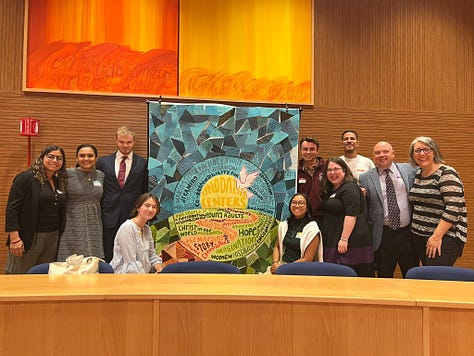
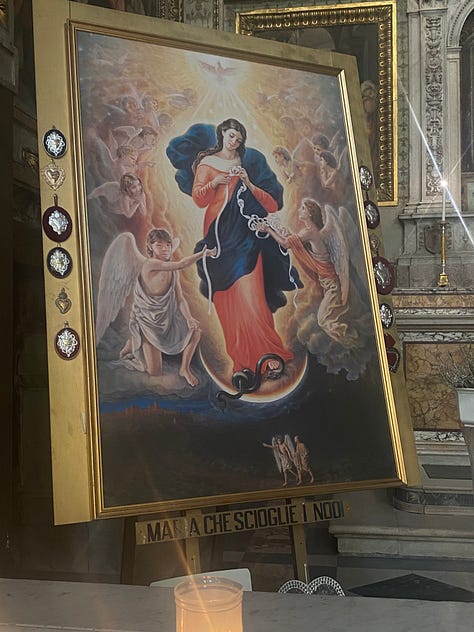
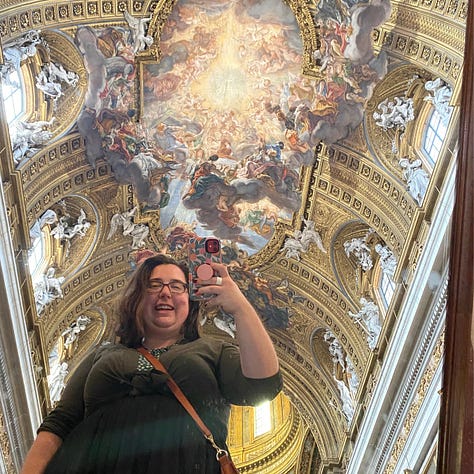

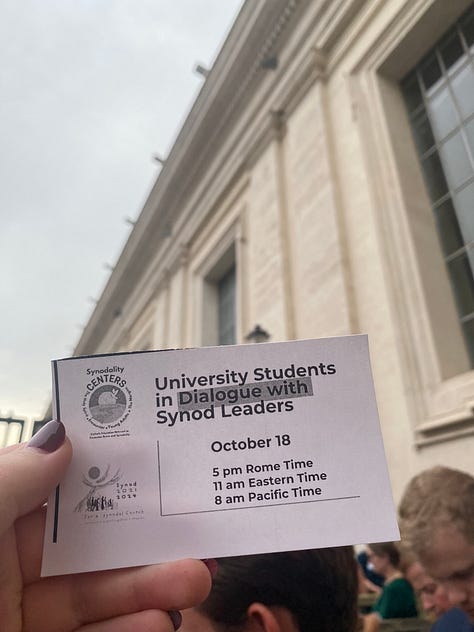
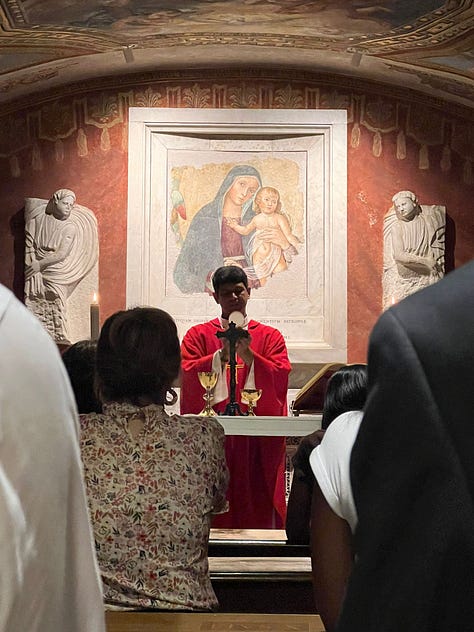
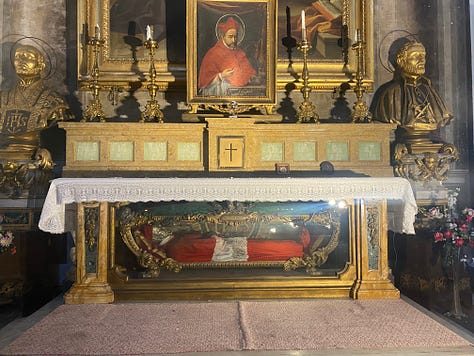
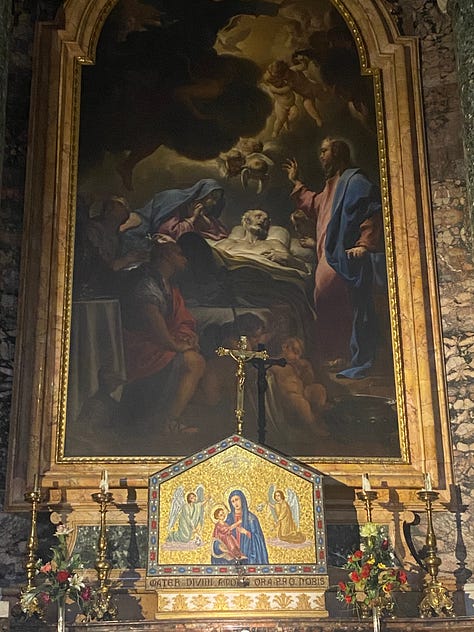
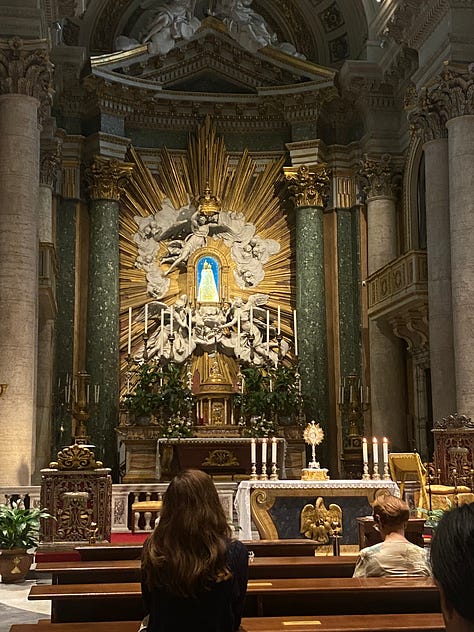

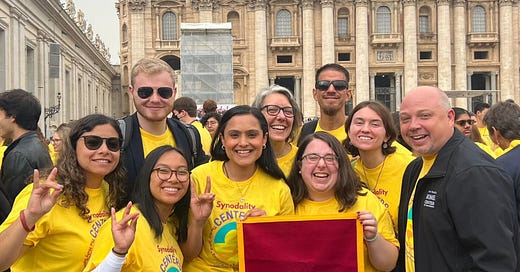


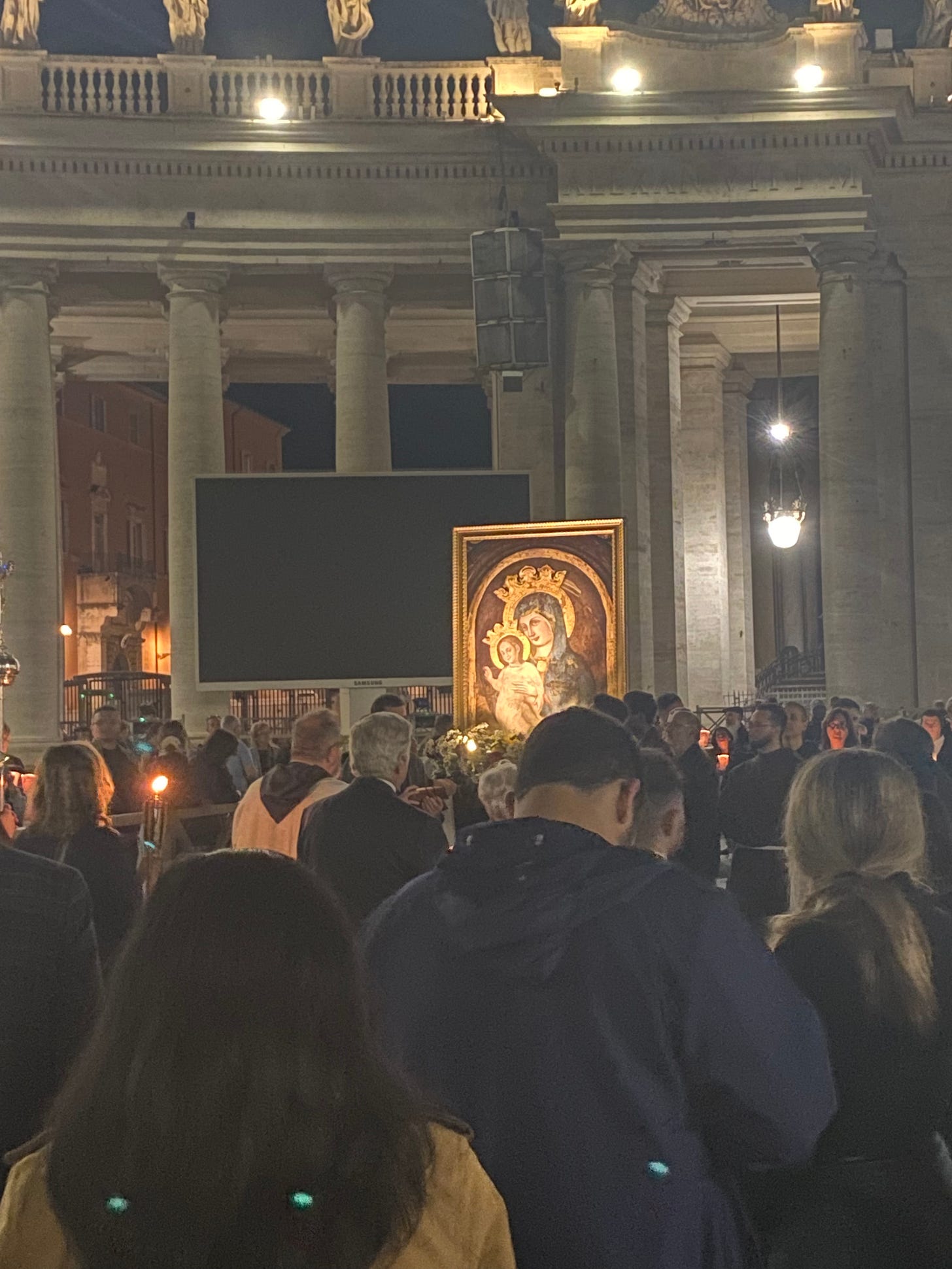
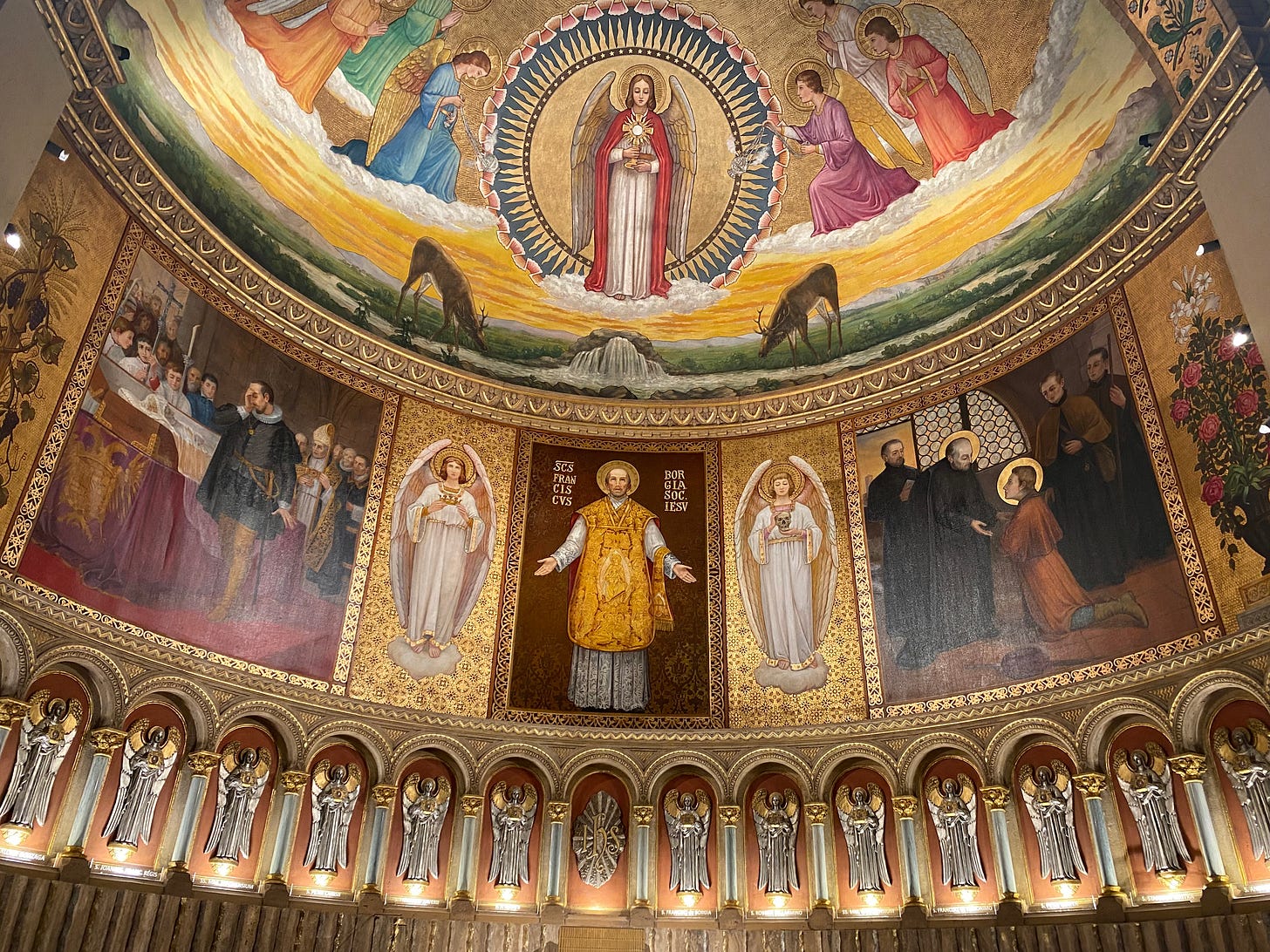
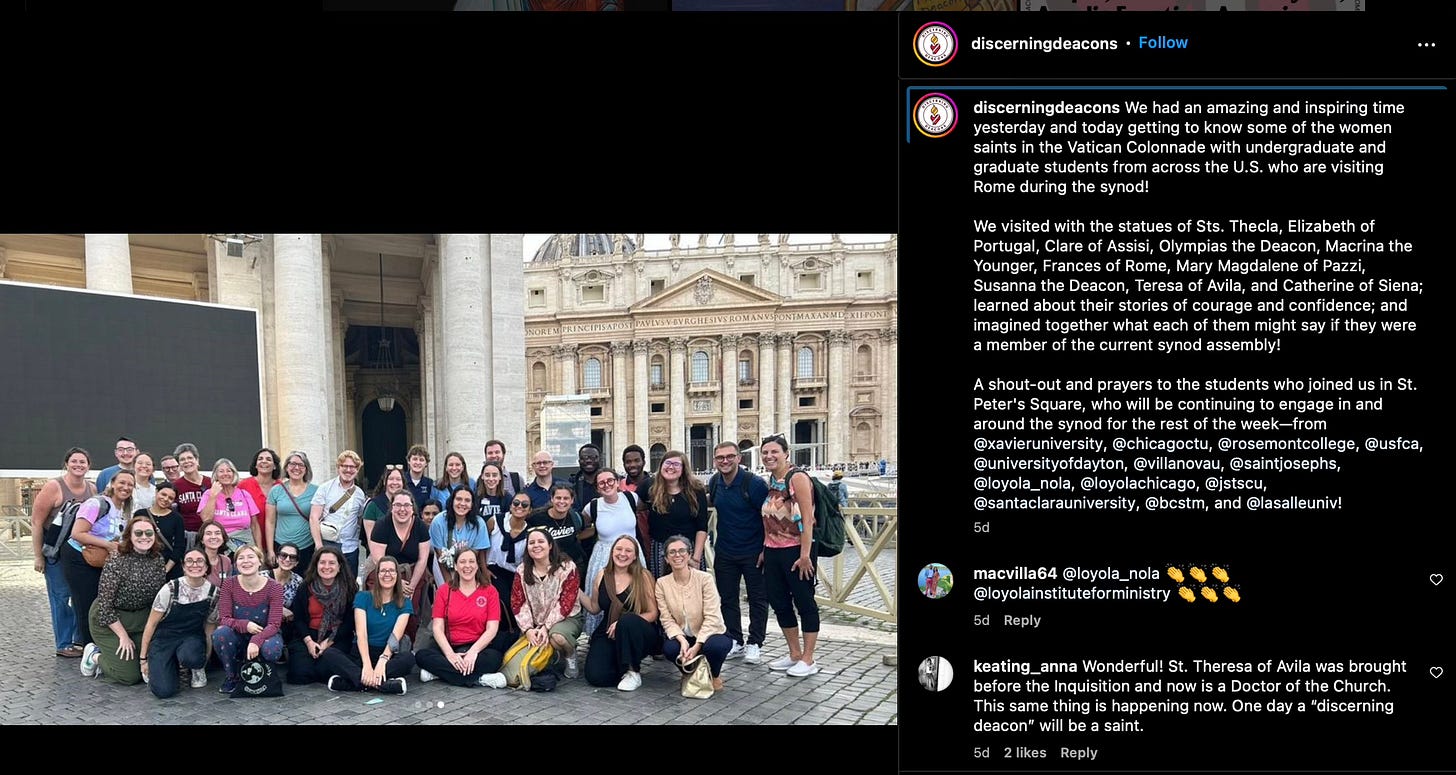
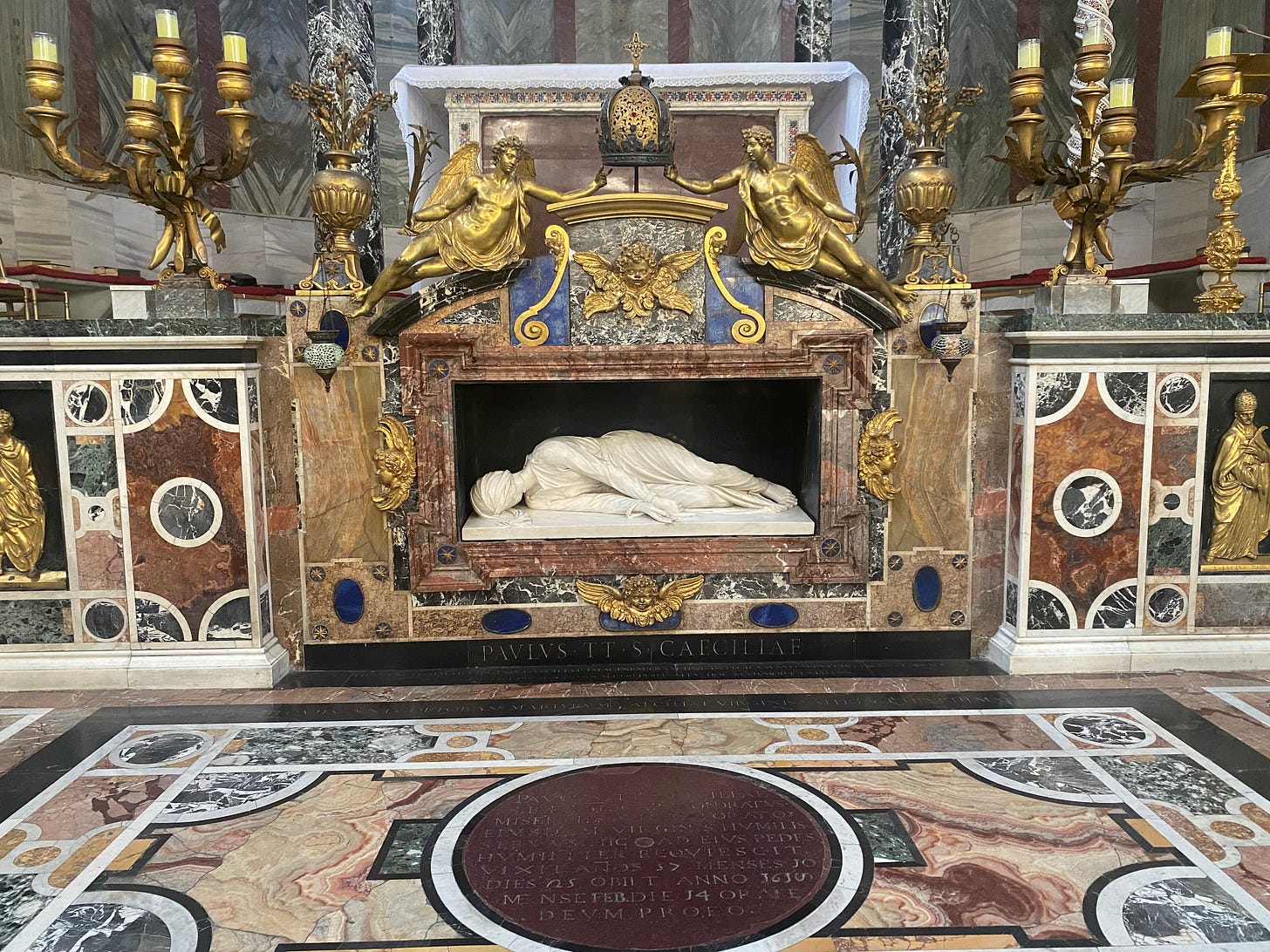
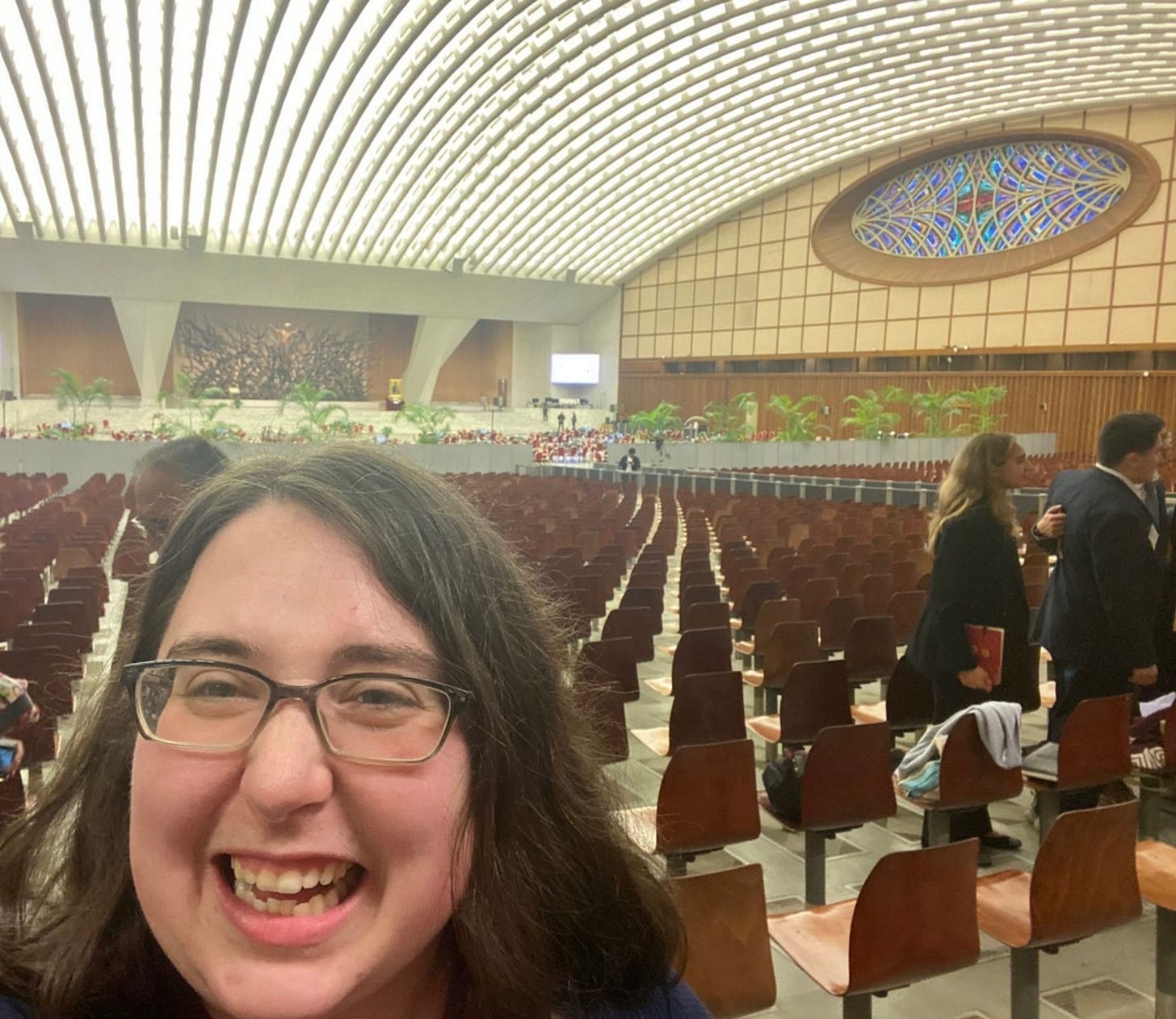
Beautiful! Thank you for sharing your experiences Natalie.